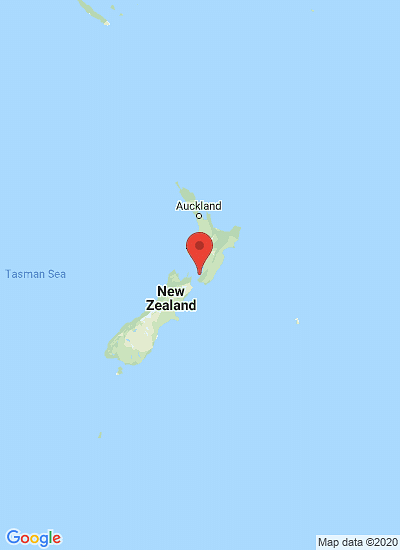Grant Robinson, business manager at supermarket chain Countdown, presenting at the Potatoes New Zealand conference in Christchurch.
New Zealand consumers prefer locally grown potatoes

New Zealand supermarket chain Countdown says its biggest selling potato is still the one with the least flavour – white washed potatoes – providing an opportunity for growers.
Countdown business manager vegetables Grant Robinson said potatoes were a pantry staple, with price still consumers’ number one consideration.
Customers also preferred that their potatoes were New Zealand-grown, he told the Potatoes NZ conference in Christchurch.

Countdown white washed potatoes, 4 kg bag
Eighty-five per cent of produce was bought direct from growers to improve freshness and communication.
The company had a focus on the environment, as research showed that 70 per cent of respondents would stop buying from companies if they were harming the environment. Grant Robinson:
“So it is incredibly important to our customers.”A third of its media enquires now related to plastics and packaging.
In response, Countdown had removed 160 tonnes of plastic through reducing gauges of plastic, or removing it completely. It had also removed 70t of cardboard and planned to remove a further 700t in the next 12 months.
However, a key point not fully understood by consumers was that there can be a trade-off between food waste and packaging, Grant Robinson said.
Packaged lettuce lasts twice as long as unpackaged lettuce – about seven days shelf life compared with three days for unpackaged.
The average household purchased 180 kilograms of packaging a year, of which 67 per cent was recycled or recovered, creating about 2.5 tonnes of carbon dioxide (CO2) emissions.
This compares with 262kg of food waste created annually by the average household, of which 20 per cent was composted, generating 39 tonnes of CO2 emissions.
Grant Robinson:
“So there are two parts of the equation, which we need to be aware of and keep the balance right.”Supermarkets dominate fresh potato sales, worth $115m. Countdown had a 36 per cent market share, while independents sold 12 per cent of fresh potatoes.
In the last 12 months, sales were flat or slightly down, with deflation around 8 per cent.
Grant Robinson:
“So customers are either buying a smaller bag, or a lower cost bag of potatoes.”Of the potatoes sold, 24 per cent are loose and 12 per cent brushed, with 21 per cent of sales discounted produce. Sales of red potatoes are only 0.07 per cent and decreasing.
Growth categories are value/discount, seasonal gourmet and premium washed.
Customers that buy loose potatoes prefer to shop for all produce loose. These customers tend to be a single person household, or live in an apartment, are environmentally focused and often buy potatoes as part of a planned meal.
Pre-packaged potatoes resonated with budget conscious customers as these were fixed price.
People who had chosen not to purchase potatoes in the last three months did so because these were perceived as less healthy than other vegetables, they were following a specific diet, or growing their own.
¿Te gustaría recibir noticias como esta por correo electrónico? ¡Únete y suscríbete!
Get the latest potato industry news straight to your WhatsApp. Join the PotatoPro WhatsApp Community!
Empresa Destacada
Contenido Patrocinado
Contenido Patrocinado
Eventos Relacionados
Contenido Patrocinado
Contenido Patrocinado












